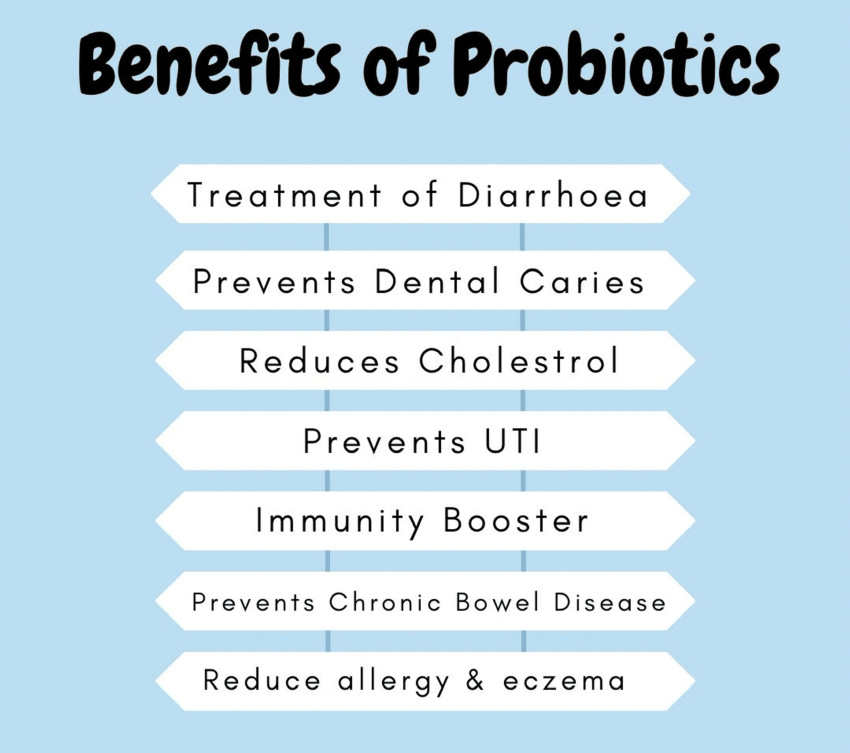Intestinal health is a topic that has been increasingly sought after… the fact that the intestine is considered our second brain makes this organ extremely important.
We feel changes in our guts in many different situations. Changes caused by our diet, our emotions, the medications we take…
But how can we beneficially help our intestines? Should we resort to supplementation? Are the benefits for everyone? See below for more on this topic.
The gut microbiota
Our intestine is an organ that contains within it a huge community of living microorganisms responsible for our physiological balance. Significant changes or reductions in this microbiota flora can lead to changes in our health. The connection of our intestine with the different systems of our body (immune, nervous,…) has been the subject of several studies.
What are probiotics
Probiotics are live microorganisms beneficial to our intestinal health. They can be consumed through food or supplementation, effectively regulating our intestinal microbiota.
Most of these bacteria belong to the Bifidobacterium and Lactobacillus strains. The viability of these strains is conditioned by several factors: pH, oxygen availability, substrate availability, secretions, etc. When the flora is well balanced, our immune system is stronger.
The benefits of probiotics
Probiotics have several benefits:
- Regulation of intestinal peristalsis: increases the number of bowel movements in cases of frequent constipation and decreases in cases of diarrhea
- Improvement of gastrointestinal symptoms: improves stool quality, decreases the effort in evacuation, alleviates pain and abdominal distention
- Balances the intestinal microbiota: increase beneficial bacteria and decreases the risk of intestinal lesions.
- Improvement of the immune system: significant increase in the number of defense cells, decrease in inflammation, …
- Decrease in the development of gastrointestinal diseases: prevents the appearance of some pathologies, such as Crohn’s disease and irritable bowel syndrome,…
- Improvement in food intolerances: decreases sensitivity to lactose, etc.
Do I need to take probiotics?
It’s important to analyze whether your flora is in balance. You can do this by listening to your body more. Do you defecate regularly? Are your stools too soft or too hard? Does it accumulate gas easily? Do you have pain in the abdominal area often? You should check with your doctor whenever these symptoms harm your day-to-day life.
Through specific analyses, it is necessary to understand whether your intestinal microbiota is balanced and whether any strains are in excess or in short supply. Only then will you understand what changes you should make to your diet or if it is necessary to introduce some supplementation or medication.
In situations of diarrhea and as prevention when taking antibiotics, it is already common to prescribe probiotics.
Where can I find probiotics?
Best vegan Probiotics uk are naturally present in some foods. In addition, they can be taken via supplementation if there is such a need.
1) Foods with probiotics
The foods richest in probiotics are fermented foods. The options are varied:
- Yogurt / Kefir
- Miso
- tempeh
- Sauerkraut
- olives
- Wine
- Beer
- kombucha
2) Supplements with probiotics
The most common supplements are based on these strains:
- Lactobacillus sp. (reuteri casei, rhamnosus, acidophilus, plantarum)
- Bifidobacterium sp. (infantile, lactis, longum, breve, bifidum)
- S. boulardii
- Bacillus sp.
Important Note
The informative content in the “Blog da Farmácia” does not replace the consultation of a health professional. Since we can’t address the topics in detail, we suggest that you consult your doctor or pharmacist for your particular situation and that you can clarify any doubts.

